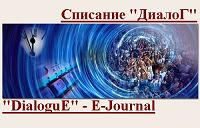Meaning, A Prioricity and Reality: Wittgenstein’s Critique of Traditional Philosophy
Meaning, A Prioricity and Reality: Wittgenstein’s Critique of Traditional Philosophy
Author(s): Alexander KanevSubject(s): Philosophy
Published by: Стопанска академия »Д. А. Ценов«
Keywords: Ludwig Wittgenstein;
Summary/Abstract: The aim of this paper is to shed some light on these issues by discussing the subject, the purpose, and the methods of Wittgenstein’s critique. On first glance, the subject is pretty clear. We are told that Wittgenstein criticized metaphysics. But what did Wittgenstein understand under ‘metaphysics’? To be sure, he did not mean a special philosophical discipline studying reality but not knowledge and ethical values. Rather, he meant the whole of traditional philosophy. So, if we are to understand his critique of metaphysics, we have first to bring to light his notion of traditional philosophy. The next step is to clarify the purpose of Wittgenstein’s critique. What was he trying to show: that most philosophical questions are nonsensical, or rather that no philosophical question can ever be meaningful? Here, I shall argue that his purpose was to show the latter, i.e. the impossibility of posing meaningful philosophical questions. His general method of accomplishing it was (1) to show (or indicate) certain conditions of sense2 and (2) to make plain that a priori propositions about reality cannot satisfy them. Thus, I disagree with the Therapeutic readings of Wittgenstein, since, as I argue, they fall short of elucidating his reasons to reject metaphysics.
Journal: Електронно списание »Диалог«
- Issue Year: 2007
- Issue No: 01
- Page Range: 1-35
- Page Count: 35
- Language: English

